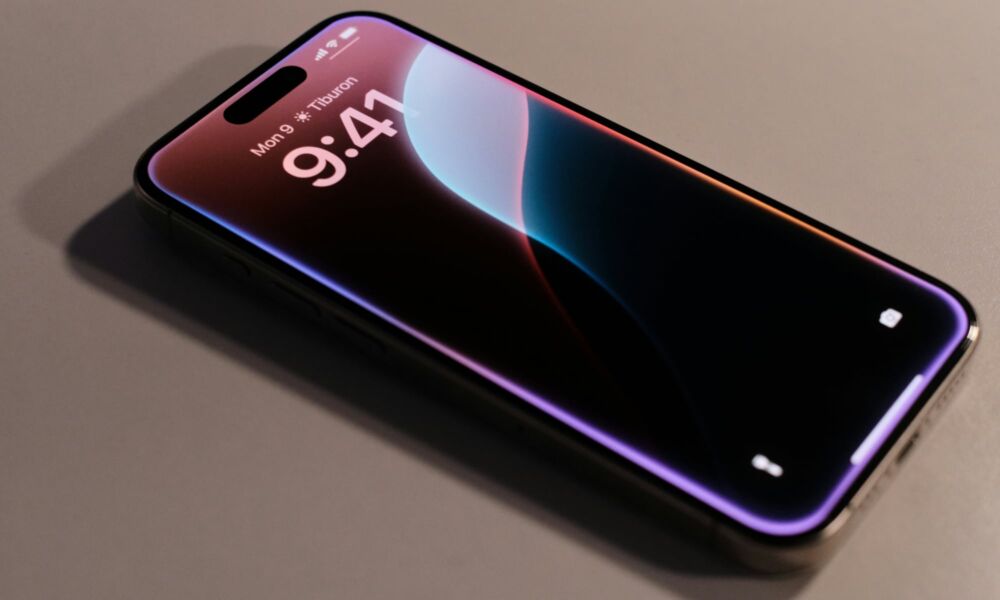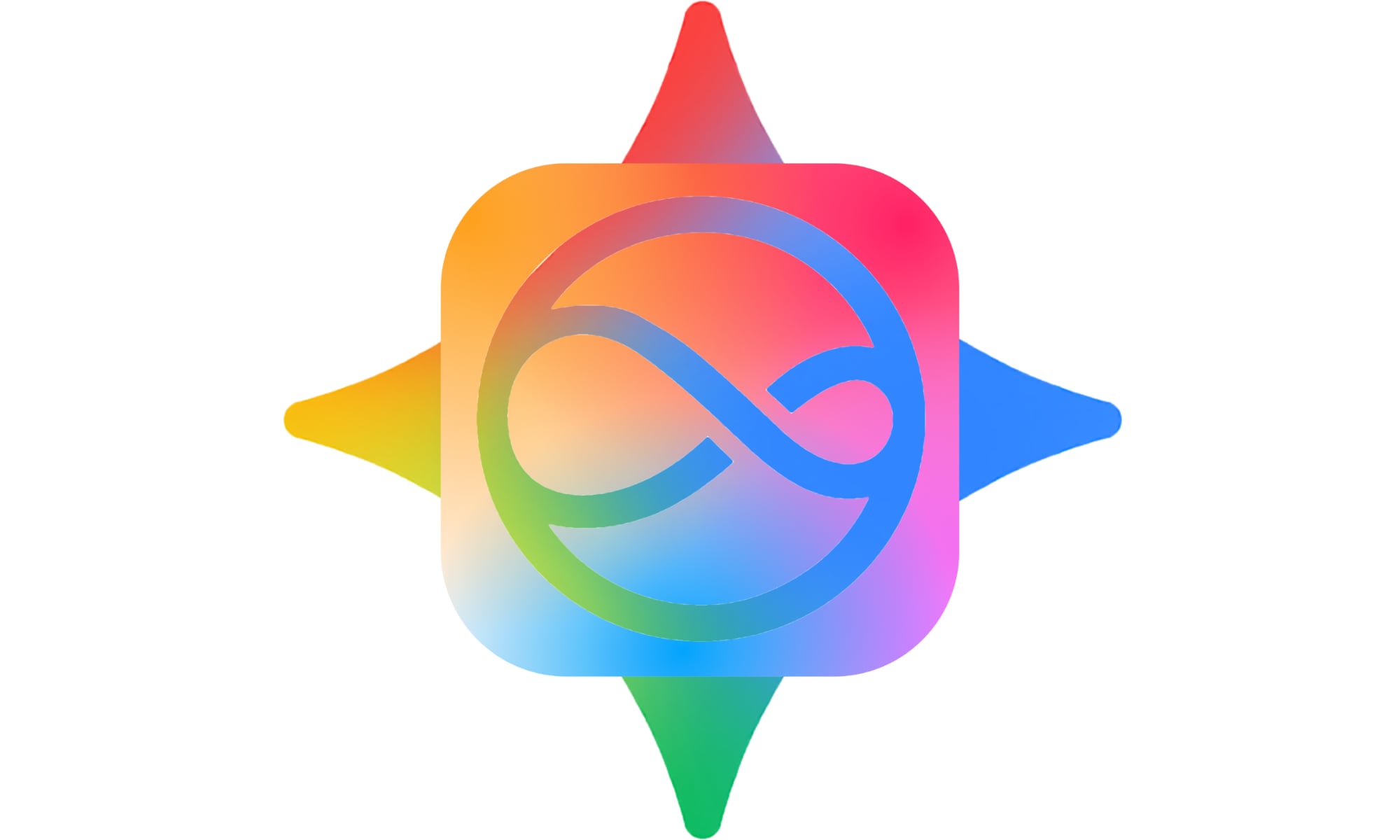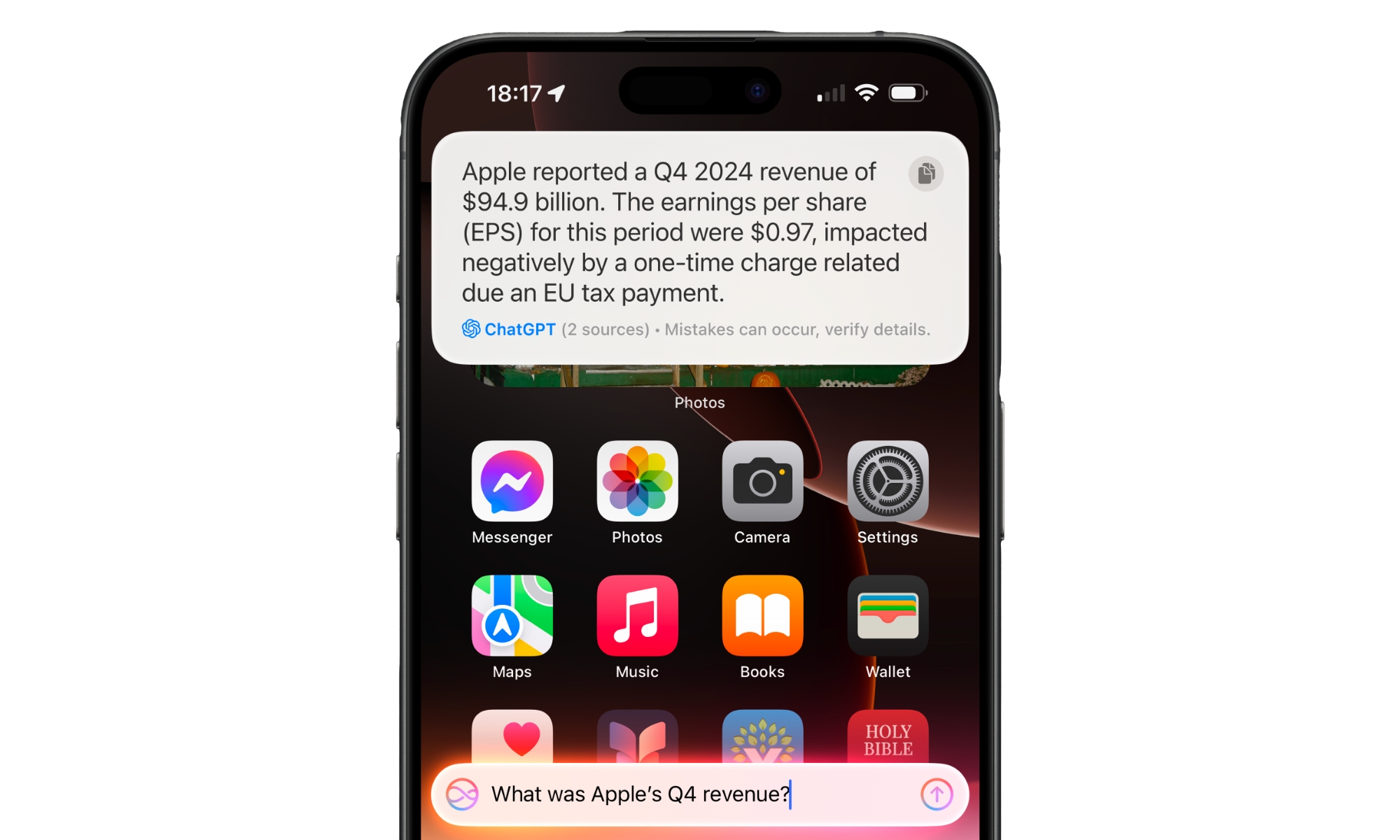Apple’s ‘Veritas’ Chatbot Could Be the Key to a Smarter Siri
 appshunter.io / Unsplash
appshunter.io / Unsplash
Toggle Dark Mode
By all reports, Apple remains on track to deliver its more personalized Siri early next year. Now, a new report from Bloomberg reveals that the company has developed a ChatGPT-like iPhone app to test the new Siri and assess how it responds to AI queries.
According to Mark Gurman, the app is code-named “Veritas.” However, before anyone gets their hopes up that Apple might actually produce its own chatbot as part of the Siri overhaul, the app is designed exclusively for internal use by Apple employees tasked with sanity-checking and refining the new large language models (LLMs) of Siri.
As Gurman points out, veritas is Latin for “truth,” which bodes well for Apple’s goal of improving Siri’s reputation as a source of useful information — in stark contrast to some of what we’ve seen since it hitched its wagon to ChatGPT last year.
While sources aren’t ruling out something similar to Veritas eventually making its way onto end-users’ iPhones, sources say that Apple has no current plans to release this in its current form.
The internal Veritas app resembles most popular chatbots, letting users manage multiple conversations across different topics. It can save and reference past chats, follow up on earlier queries and support extended back-and-forth exchanges.
Mark Gurman, Bloomberg
Still, the existence of Veritas is a good sign that Apple is doubling down on getting Siri 2.0 ready for prime time. While company executives have gone on the record to say that they’re now targeting 2026, they’re also being a bit less committal about it than they were when it was first announced during the June 2024 Worldwide Developers Conference (WWDC). That keynote pegged it as an iOS 18 feature, whereas a vaguer reference to 2026 gives Apple the leeway to push it off into iOS 27 without technically missing any deadlines.
Apple has a lot at stake here. As handy as the current suite of Apple Intelligence tools is, there’s also nothing revolutionary here. The next generation of Siri is what’s needed to give Apple its “AI comeback,” as Gurman puts it. He still believes it could debut as early as March, likely in iOS 26.3 or 26.4. However, given the expectations that Apple has set and the time it has taken, the company can’t risk anything less than a slam dunk.
Veritas is designed to test Apple’s new Siri LLMs, code-named Linwood, which are now powered using a combination of Apple’s own Foundation Models and a third-party model. It’s not entirely clear which company Apple has partnered with, but Gurman has previously reported on potential partnerships with OpenAI, Anthropic, or Google’s Gemini to power Siri’s new brains.
Sources indicate that Apple has not yet made a decision on whether to work with a partner, let alone which one it might choose if it were to do so. Last month, Gurman reported that Apple was holding a “bake-off” to choose the best model. The new Veritas internal app may be where Apple is running real-world comparisons of competing LLMs, letting employees stress-test how each one handles nuanced Siri prompts.

Gurman previously reported that Apple was pursuing two distinct versions of the new Siri: one code-named Linwood, powered entirely by Apple’s in-house models, and another dubbed Glenwood, built around outside technology. However, this latest report suggests Apple may no longer be treating these as separate tracks. Instead, the company appears to be leaning toward a hybrid approach — blending its Foundation Models with third-party LLMs to cover gaps in performance. This shift would let Apple maintain control over core capabilities while still leveraging the strengths of partners like OpenAI, Anthropic, or Google, as needed.
Despite these moves, Apple plans to continue integrating other chatbots into Apple Intelligence. The existing ChatGPT support won’t be going anywhere, even if Apple partners with Anthropic or Google for Siri 2.0. Apple is reportedly still in talks with Google about incorporating Gemini as an Apple Intelligence extension. The potential partnerships to bolster Siri’s LLMs are not about using off-the-shelf tools like ChatGPT, Claude, or Gemini, but rather about having those companies develop custom implementations of their language models that can run on Apple’s Private Cloud Compute infrastructure.
[The information provided in this article has NOT been confirmed by Apple and may be speculation. Provided details may not be factual. Take all rumors, tech or otherwise, with a grain of salt.]








